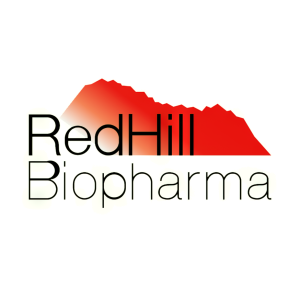RedHill Biopharma Receives U.S. Patent Allowance Covering Opaganib and RHB-107 Combination
RedHill Biopharma (RDHL) has received a Notice of Allowance from the USPTO for a patent covering the combination of its investigational drugs, opaganib and RHB-107, for treating solid tumors, extending IP protection until 2036. A pre-clinical study on cholangiocarcinoma showed that both drugs individually and together induced tumor regression, with the combination being particularly effective. RedHill plans to introduce a third cohort in its Phase 2a study to evaluate this combination, pending FDA discussions, following preliminary positive results from the ongoing trial.
- Notice of Allowance for new patent extends IP protection until 2036.
- Combination of opaganib and RHB-107 demonstrated potent antitumor effects in pre-clinical studies.
- Plans to expand Phase 2a study with additional cohort based on promising preliminary results.
- None.
Insights
Analyzing...
Notice of Allowance received for combination of RedHill’s novel orally-administered investigational drugs, opaganib and RHB-107, for treatment of solid tumor cancers; patent expected to extend IP protection until 2036
--
Combination of opaganib and RHB-107 demonstrated potent antitumor effect and tumor regression in recent cholangiocarcinoma pre-clinical study
--
RedHill plans to add third cohort evaluating this combination to its ongoing Phase 2a study of opaganib in advanced cholangiocarcinoma, subject to FDA discussions
TEL AVIV, Israel and RALEIGH, N.C., Nov. 04, 2020 (GLOBE NEWSWIRE) -- RedHill Biopharma Ltd. (Nasdaq: RDHL) (“RedHill” or the “Company”), a specialty biopharmaceutical company, today announced that it has received a Notice of Allowance from the United States Patent and Trademark Office (USPTO) for a new patent application related to the use of two of RedHill’s proprietary investigational compounds, opaganib (Yeliva®, ABC294640) and RHB-107 (upamostat)1, for the treatment of solid tumor cancers. The patent is expected to extend IP protection for the combination until 2036.
Findings from a recent pre-clinical study evaluating the antitumor effect of opaganib and RHB-107 on cholangiocarcinoma (also known as bile duct cancer) patient-derived xenografts demonstrated that treatment with opaganib and RHB-107, individually and in combination, resulted in tumor regression. Moreover, the combination of both drugs was found to be more potent and well tolerated in the animal models. These findings were presented at the American Association for Cancer Research (AACR) annual meeting earlier this year2.
“It is becoming increasingly evident that cancers are dependent on a number of altered molecular pathways and can develop diverse mechanisms of resistance to therapy with single agents,” said Danielle T. Abramson, Ph.D., VP, Intellectual Property & Research at RedHill. “This application is part of a growing patent portfolio that expands patent protection for our oncology program through 2036. We are very pleased with the additional IP protection for the novel combination of opaganib and RHB-107, which follows promising findings on the potent synergistic antitumor activity of this combination.”
RedHill is conducting a Phase 2a study evaluating the activity of opaganib in advanced, unresectable intrahepatic, perihilar and extrahepatic cholangiocarcinoma (NCT03377179). Enrollment has been completed for the first cohort of 39 patients, evaluating the activity of orally-administered opaganib as a stand-alone treatment. Preliminary data from this cohort indicated a signal of activity in a number of subjects with advanced cholangiocarcinoma, and in light of these data, input from key opinion leaders and preclinical research that had been conducted at Mayo Clinic, RedHill initiated enrollment for a second cohort, evaluating opaganib in combination with hydroxychloroquine, an anti-autophagy agent. Given the encouraging pre-clinical data, RedHill plans to add an additional cohort to the ongoing Phase 2a study in cholangiocarcinoma, evaluating opaganib in combination with RHB-107, subject to discussions with the U.S. FDA.
About Opaganib (ABC294640, Yeliva®)
Opaganib, a new chemical entity, is a proprietary, first-in-class, orally-administered, sphingosine kinase-2 (SK2) selective inhibitor with demonstrated dual anti-inflammatory and antiviral activity that targets a host cell component, potentially minimizing the likelihood of viral resistance. Opaganib has also shown anticancer activity and has the potential to target multiple oncology, viral, inflammatory and gastrointestinal indications.
Opaganib received Orphan Drug designation from the U.S. FDA for the treatment of cholangiocarcinoma and is being evaluated in a Phase 2a study in advanced cholangiocarcinoma and in a Phase 2 study in prostate cancer. Opaganib is also being evaluated in a global Phase 2/3 study and a U.S. Phase 2 study for the treatment of severe COVID-19.
Preclinical data have demonstrated both anti-inflammatory and antiviral activities of opaganib, with the potential to reduce inflammatory lung disorders, such as pneumonia, and mitigate pulmonary fibrotic damage. Opaganib demonstrated potent antiviral activity against SARS-CoV-2, the virus that causes COVID-19, completely inhibiting viral replication in an in vitro model of human lung bronchial tissue. Additionally, preclinical in vivo studies3 have demonstrated that opaganib decreased fatality rates from influenza virus infection and ameliorated Pseudomonas aeruginosa-induced lung injury by reducing the levels of IL-6 and TNF-alpha in bronchoalveolar lavage fluids.
Opaganib was originally developed by U.S.-based Apogee Biotechnology Corp. and completed multiple successful preclinical studies in oncology, inflammation, GI, and radioprotection models, as well as a Phase 1 clinical study in cancer patients with advanced solid tumors and an additional Phase 1 study in multiple myeloma.
Under






